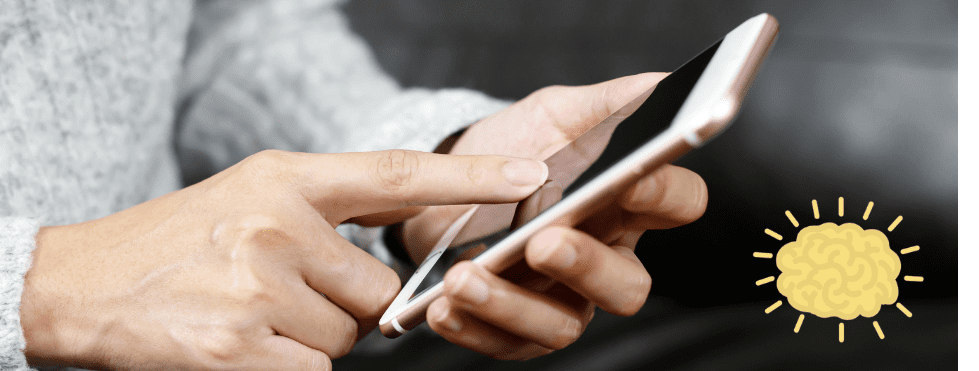

Based on research from professor Edward Selby, Storm/breaker aims to help users better cope with stressful situations
To help people regulate their emotions in healthy ways, a Rutgers researcher pioneered the Storm/breaker Emotion and Behavior Management app as a standalone smartphone mental health intervention.
Based on his research on emotion dysregulation and emotional cascades and experience with mental health research projects, Edward Selby, a faculty member at Rutgers Institute for Health, Health Care Policy and Aging Research, led the development of the app to better understand mental illness and its causes. Storm/breaker is set to launch in Apple’s App Store on April 24. The app prompts users to consider their mental health at different times throughout the day, increasing awareness of unique personal experiences. Progress and improvement can be viewed over time to help users identify and better understand how their emotions change and the triggers that may cause those changes.
“The better we can understand the underlying causes and dynamics that result in the problems we define as ‘mental illness,’ the better we can design, tailor and adapt treatments to help improve those underlying problems,” said Selby.
According to the National Alliance on Mental Illness, more than 20 percent of adults in the United States experienced mental illness in 2020. There is increasing evidence that technology may be used to address mental health care beyond the conventional office setting. These approaches, including smartphone treatment apps, may help reach patients in need of mental health services who lack access to care.
Selby’s research shows people often react emotionally to stressful situations in ways that make the situations worse. When this happens, people are at higher risk for harmful behaviors, such as substance use, binge eating, hostility and self-injury.
“The goal of Storm/breaker is to help people naturally and automatically understand dynamic emotional, cognitive, interpersonal and behavioral experiences occurring in their lives,” said Selby, who is also the director of clinical training and associate professor in the Department of Psychology at Rutgers. “As understanding of these processes grows, they will spontaneously begin to make more healthy and adaptive responses to upsetting situations that arise.”
Selby expects the Storm/breaker app to help users in a number of ways, including:
Selby said while other apps attempt to convert typical in-person therapy into a smartphone experience, Storm/breaker is a standalone intervention designed specifically to harness the advantages of daily smartphone use.
Selby will discuss his research on mental health in an episode of the PBS series Healthy Minds with Dr. Jeffrey Borenstein in May 2023 during Mental Health Awareness Month.
The app was programmed in collaboration with Michigan Software Labs.